I have affiliate relationships with Bookshop.org and Malaprop's Bookstore in beautiful Asheville, NC. I will earn a small commission at no additional cost to you if you purchase merchandise through links on my site. Read more on my affiliate page.

Title: Unbeaten Tracks in Japan
Author: Isabella Bird
Genre: Travel, Memoir, Epistolary, Exploration
Audience: Adult
My Review:
I read one of Ms. Bird’s earlier books, Adventures in the Rocky Mountains, during my blogging break and quite enjoyed it. I could only admire a woman who, in Victorian times, not only traveled alone, but managed to summit Longs Peak in a dress. When I needed a travel book as part of the 2021 Nonfiction Challenge, Ms. Bird came to mind and this was the book that was available at my library.
What I forgot in my admiration for Ms. Bird’s accomplishments as a woman is her matter-of-fact racism. This is so disturbing! She’s a product of her time but it’s so jarring to read today! Her attitude does improve as she travels more extensively throughout Japan and grows accustomed to the culture. She really doesn’t like Japanese people at all at first. As she travels and learns the culture, she appreciates their unquestioning kindness toward guests. After a week or two of traveling, she even mentions that a young Japanese lady is the most beautiful woman she’s ever seen, bar none! But this tends to be the exception more than the rule. The interior of Japan was apparently very poor at this point in history and she continually complains about how filthy everything is, including her rooms, the adults, and especially the children.
When she visits the Ainu people, she really likes them and struggles to work out her feelings in her letters. Her father was a clergyman so she’s coming from a very conservative Christian background. I did finally take some notes in this section.
Surely these simple savages are children, as children to be judged; may we not hope as children to be saved through Him who came not to judge the world, but to save the world ?
She’s still degrading them but if she’s worried about their souls, at least she sees them as humans who have souls and feelings. Then she has a longer theosophical argument with herself.
The glamour which at first disguises the inherent barrenness of savage life has had time to pass away, and I see it in all its nakedness as a life not much raised above the necessities of animal existence, timid, monotonous, barren of good, dark, dull, without hope, and without God in the world; though at its lowest and worst considerably higher and better than that of many other aboriginal races, and– must I say it?–considerably higher and better than that of thousands of the lapsed masses of our own great cities who are baptized into Christ’s name, and are laid at last in holy ground, inasmuch as the Ainos are truthful, and, on the whole, chaste, hospitable, honest, reverent, and kind to the aged.
She’s still calling them savages but she’s finally admitting that they’re more moral than a lot of Christians. I don’t think we can call her “woke” by modern standards, but for the time, she’s practically a paragon of acceptance, I guess.
That aside, the bulk of the book is monotonous. I don’t know if she visited in an exceptionally rainy summer or if the interior is a temperate rainforest, but most of the book can be summed up with, “It rained; I slept in a disgusting hovel; I rode an obstreperous, ill-treated horse; it rained even more; I crossed a flooded river; I slept in a disgusting hovel; repeat.”
There were a few notable exceptions to the monotony and I wish Ms. Bird had written more consistently like this. The Shrine of Nikko (I think we call it the Toshugo Shrine now) astounds her and she describes it extensively. She writes beautifully about seeing a young bride preparing for her wedding. The rest is rain and mud until she visits the Aino, where her writing really shines. It doesn’t rain as much while she’s visiting them, so she thoroughly describes their appearance (in unconsciously derogatory terms), their religion, their customs, some of their mythology, and their culture, all of which is fascinating.
I preferred Adventures in the Rocky Mountains overall (although I do remember now that Ms. Bird always refers to Native Americans as savages too), because there’s more going on than just rain and mud. I’d recommend that book over this one but if you’re looking for more of this author’s works, certainly give Unbeaten Tracks in Japan a try.
My Synopsis:
Isabella Bird was born in England in 1831. She was unwell most of her life so her doctor essentially gave her a prescription to travel. Travel she did, becoming the first woman to be elected a fellow of the Royal Geographic Society.
In 1878, she visited Japan. She hired a young Japanese man, Ito, to interpret for her and assist with arrangements. The pair set out for the interior of the country, which hadn’t been explored very well by Europeans at that point. After completing that part of her journey, she visited the indigenous Aino (now, Ainu) people of Japan.
Similar Books:
If you liked Unbeaten Tracks in Japan, you might also like my reviews of
- Around the World by Matt Phelan
- Without Reservations: The Travels of an Independent Woman by Alice Steinbach
- Under the Tuscan Sun by Frances Mayes
Reading Challenge:
Purchase:
Buy Unbeaten Tracks in Japan from Malaprop’s Bookstore in Asheville, NC or

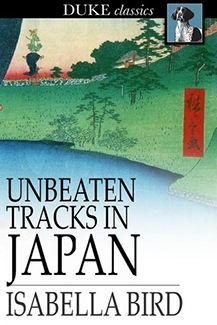
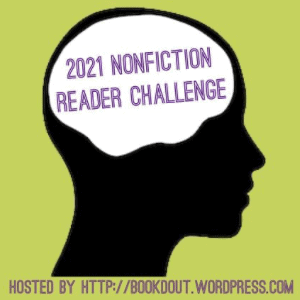

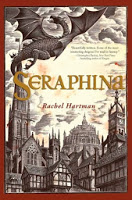
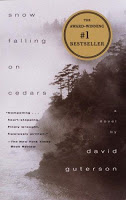
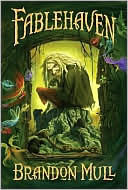
6 Comments
Ah… I have the book on my Kindle, so I’ll read it someday but what you say doesn’t make me want to rush to it, though, as you say, given who she was and what the time was, it’s no big surprise. Thanks for sharing, I’ll be happy to compare our feelings when I read it !
I hope you enjoy it more than I did!
Pity that she was a product of her times regarding the racism. Given how she travelled alone in that era, I was kinda hoping she was more modern in other aspects, too.
I have never head of Isabella Bird but she does sound like an interesting character. I will have a look at some of her memoirs. I’ve been to Japan with my husband and it’s a wonderful country to travel. Would love to go back again!
https://elzareads.blogspot.com/
Oh dear. I had been looking forward to reading this book too (after you’d mentioned it some time back on your blog). Think not, anymore! She certainly was an accomplished woman for her time. But even setting aside the cultural insensitivity and the grudging tolerance, the book doesn’t seem to be a very great Japan travel guide for the 1870s. It’s too bad.
Thanks for sharing your thoughts. Her attitude is unfortunate but as you say, given the times there is something to be said that she made the effort. I read The Girl Explorers which is about the establishment of The Society of Women Geographers for the challenge and I remember her name being mentioned.